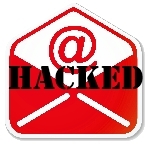
by Christina DesMarais for Techlicious
The 6 Biggest Facebook Scams
Facebook now has a billion users, with more than half of those people signing on every month. Unfortunately, crooks and scammers are also part of the social network’s population—they figure at least a certain percentage of users will fall for their shenanigans.
According to Chester Wisniewski, senior security advisor at the security firm Sophos, the number of Facebook scams in play seems to be holding steady. And while Facebook is trying to tackle the problem, the scammers don’t give up easily when they can profit off unsuspecting people.
How do you spot a Facebook scam? Be wary of unlikely promises, Wisniewski says.
“No one is giving away an iPad to every person who fills out a survey and you aren’t likely the specially chosen winner of the Nokia, Microsoft or Coca-Cola lottery, because there isn’t one,” he says. “The best practice is to avoid clicking links on Facebook at all. It is generally safe to click links from trusted pages of companies, bands and groups you like, but avoid clicking links from your friends’ walls and chat messages.”
Here are popular Facebook scams you should watch out for.
Change Your Facebook Profile Color

This “color changer v1.3” is actually a survey scam application, and you definitely don’t want to give it access to your Facebook account. It promises to let you change your Facebook profile color to something other than blue. If you click on the link, it asks you to “like” the app before it even does anything for you, and if you click on “continue” you’ll land at an app permission page. If you authorize the app to access your Facebook account it will send spam messages to all your friends. Not only that, if you actually click to install the app, it won’t give it to you until you fill out a survey.
Free Gift Card or Voucher

If somebody on Facebook tells you Costco, McDonald’s, Starbucks or any other company is giving away vouchers or gift cards if only you invite your friends to the offer or click on a link—don’t believe it. If you do, you’ll end up spamming all your contacts with bogus messages about the fake offer, be asked to participate in surveys or prodded to complete “reward offers” in which you may be asked for personal information. If you supply your name, address, phone number or other things to these dishonest marketers, they can sell your data to others as well as harass you via non-Facebook media.
This excerpt appears with the permission of Techlicious.




